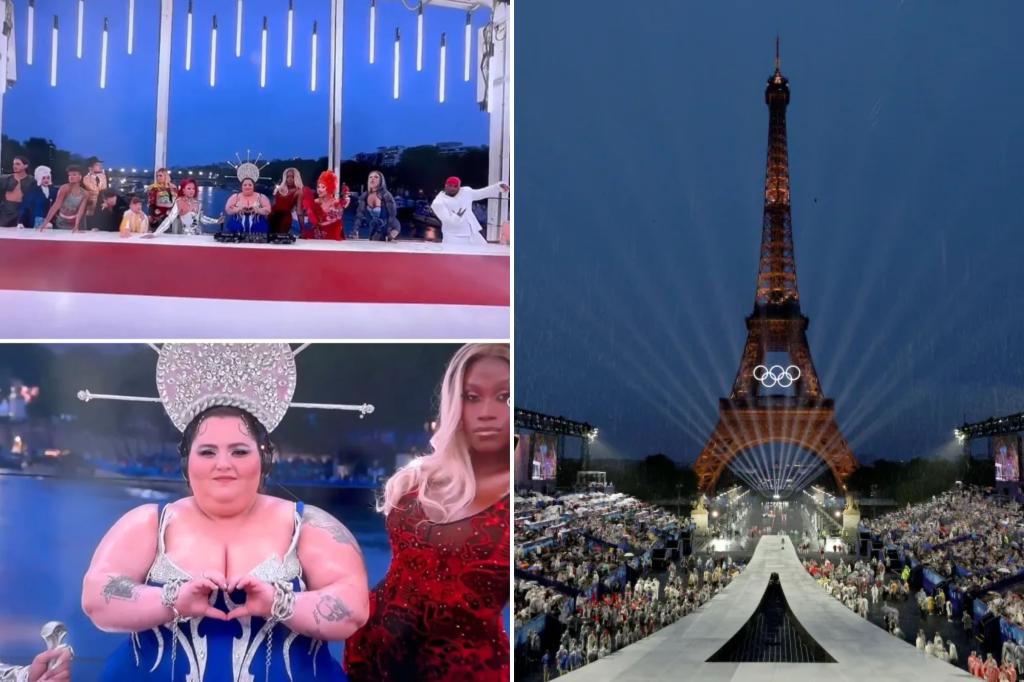The 2024 Olympic Ceremony in Paris, France kicked off the games with a display of French culture and controversial art that led to some global backlash. C Spire, a technology company based in Mississippi, announced that it would be pulling its advertising from the Olympics due to the ceremony’s mockery of a painting depicting a biblical moment important to the Christian faith, specifically the Last Supper. The ceremony featured performances by global stars like Celine Dion and Lady Gaga, as well as drag queens from “RuPaul’s Drag Race”, creating a spectacle that drew mixed reactions from viewers around the world.
During the opening ceremony, drag queens from “Drag Race France” participated in a fashion runway segment that included a scene evoking Leonardo da Vinci’s “The Last Supper.” This performance, resembling Jesus Christ and his apostles, attracted attention and criticism, with some finding it disrespectful. The ceremony received negative feedback from individuals on social media who were offended by the depiction and perceived blasphemy, calling it the worst opening ceremony in history. The private sector in Mississippi, including Governor Tate Reeves, supported C Spire’s decision to pull its advertising, citing that God should not be mocked.
Despite the controversy, the artistic director of the opening ceremony, Thomas Jolly, stated that the intention was not to be subversive but to promote inclusivity and diversity. Jolly explained during an International Olympic Committee media briefing that the focus was on showcasing values and principles, aiming to trigger reflection through a committed message. Paris 2024 President Tony Estanguet also defended the ceremony, emphasizing that it was meant to promote freedom of expression while representing French cultural values. However, far-right French politician Marion Maréchal criticized the performance, stating that it did not represent the views of all French citizens.
The backlash against the 2024 Olympic Ceremony continued with various individuals expressing their disappointment and outrage on social media platforms. The spectacle, which included drag queens reenacting a scene resembling “The Last Supper,” offended many Christians around the world, leading to criticism of the organizers and performers involved. While some defended the artistic expression and message of inclusivity presented in the ceremony, others felt that it crossed a line by disrespecting religious beliefs. The ceremony, despite its intention to promote diversity and unity, sparked discussions and debates about artistic freedom and cultural sensitivity.
As the controversy surrounding the 2024 Olympic Ceremony in Paris unfolded, Vice President Kamala Harris did not respond to requests for comment, and various camps, including members of the Catholic Church, remained silent. The event drew attention not only for its artistic choices but for the subsequent backlash and discussions it generated regarding the boundaries of artistic expression and respect for religious beliefs. The differing viewpoints on the ceremony highlighted the complexity of balancing artistic freedom with cultural sensitivity in a global context, prompting reflection on the role of art in shaping societal values and perceptions.


